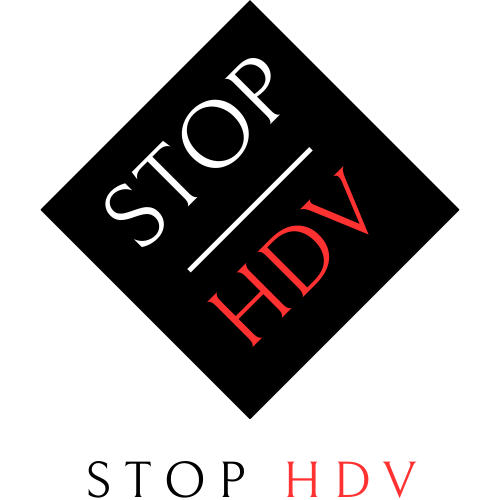Living with a chronic condition is tough, but healthcare groups like the Ob Hospitalist Group offer specialized care for individuals. Dedicated to improving maternal health, they provide high-quality care and education to expecting mothers. With a team of experienced providers, they offer tailored comprehensive care. Partnering with them helps manage conditions before, during, and after pregnancy, focusing on education, support, and empowerment for patients navigating chronic illness.
The Power of Diet in Chronic Disease
The significance of diet in chronic disease is undeniably strong. Studies have shown that certain foods can exacerbate symptoms and contribute to the progression of conditions, while others hold the key to managing health effectively. The American Heart Association emphasizes diet as a significant player in heart disease prevention and management. Meanwhile, for those with diabetes, dietary choices are paramount to controlling blood sugar levels. Similarly, individuals with autoimmune conditions often report an improvement in their health through specific dietary adjustments.
Understanding the Connection
At the heart of the matter is inflammation, a common denominator in many chronic conditions. Certain foods can trigger the body’s inflammatory response, leading to a cascade of cellular events that can worsen symptoms and lead to tissue damage. On the other hand, an anti-inflammatory diet, rich in fruits, vegetables, and omega-3 fatty acids, can help suppress the body’s inflammatory response, potentially alleviating symptoms and improving overall well-being.
Tailoring Your Diet to Your Condition
There is no one-size-fits-all approach when it comes to diet and chronic conditions. The nuances of your specific health issue, as well as individual biochemical differences, warrant a personalized approach. Working with a registered dietitian or nutritionist can help you tailor a diet plan that’s optimal for your health needs. In the case of chronic kidney disease, for example, a diet that moderates protein, phosphorus, and potassium intake is often advised. Similarly, those with celiac disease must adhere to a strict gluten-free diet to manage their symptoms effectively.
Building Blocks of a Health-Promoting Diet
An effective strategy for managing chronic conditions through nutrition involves focusing on certain key elements in your diet. By ensuring that these components are in place, you can provide your body with the resources it needs to fight off the negative impacts of your condition.
Balanced Nutrition
This is about getting the right balance of macronutrients — proteins, fats, and carbohydrates — as well as ensuring that you’re getting a full complement of essential vitamins and minerals. A balanced diet is crucial for maintaining energy levels, supporting your immune system, and many other vital functions.
Anti-Inflammatory Foods
Incorporating foods that are known to have anti-inflammatory properties can be particularly beneficial. This includes a wide variety of fruits and vegetables, as well as sources of omega-3 fatty acids such as fatty fish, flaxseeds, and walnuts.
Avoiding Trigger Foods
Many people with chronic conditions have identified “trigger” foods that seem to worsen their symptoms. By keeping a food journal and documenting your meals alongside any symptom flare-ups, you can begin to identify patterns and eliminate these potential triggers.
Hydration
Staying properly hydrated is key for everyone, but especially for managing chronic health issues. Water helps the body transport nutrients, regulate temperature, and flush out waste products. For individuals with conditions like kidney disease, fluid intake will need to be monitored more closely.
Nutritional Approaches to Specific Chronic Conditions
Different chronic conditions may require different dietary approaches. In this section, we’ll explore some of the more common chronic conditions and how nutrition can be tailored to help manage them.
Cardiac Health
A heart-healthy diet is a powerful tool for managing heart disease. This typically involves reducing your intake of saturated and trans fats, increasing your intake of high-fiber foods, and watching your sodium levels. The DASH (Dietary Approaches to Stop Hypertension) diet, for example, emphasizes fruits, vegetables, whole grains, lean meats, and low-fat dairy.
Diabetes Management
For individuals with diabetes, managing blood sugar levels through diet is essential. This often involves controlling portion sizes, adhering to a consistent eating schedule, and choosing foods with a low glycemic index. A diet rich in whole grains, lean proteins, and healthy fats can help stabilize blood sugar.
Autoimmune Conditions
There is increasing evidence to suggest that diet may play a role in managing autoimmune diseases such as rheumatoid arthritis, lupus, and multiple sclerosis. The autoimmune protocol (AIP) diet, for example, restricts foods that are known to cause inflammation and gut irritants, such as grains, legumes, and dairy.
Kidney Disease
Chronic kidney disease often necessitates a diet that moderates protein, phosphorus, and potassium intake. This usually means reducing the consumption of high-phosphorus foods like dairy and whole grains and limiting potassium-rich foods such as bananas and potatoes.
Overcoming Nutritional Challenges
Changing your diet to better manage a chronic condition can be challenging. Old habits die hard, and many of our social interactions revolve around food. Here are some strategies to help you overcome common obstacles.
Building a Support System
Engaging the support of friends, family, and healthcare providers can be invaluable. These individuals can offer encouragement, accountability, and sometimes even practical help with meal planning and preparation.
Educating Yourself
The more you know about the relationship between your diet and your condition, the better equipped you will be to make informed decisions. Stay abreast of the latest research, and don’t hesitate to ask questions of your healthcare team.
Setting Realistic Goals
Rome wasn’t built in a day, and changing your eating habits won’t happen overnight. Set attainable goals for yourself, and celebrate your successes along the way.
Focus on What You Can Eat
Rather than fixating on all the foods you should be avoiding, focus on the vast array of delicious and healthy options that are available to you.
Final Thoughts on the Role of Nutrition in Health Management
Your diet is an integral component of your overall health, and its importance is often magnified in the context of chronic conditions. By understanding the link between nutrition and your specific health issue, and by making purposeful food choices, you can take control of your well-being in a meaningful way. Remember, it’s not about being perfect, but about making the best choices you can each day that support your health goals. If you’re looking for a place to start, why not begin with your next meal? It could be the first step on a path to better health and vitality.


